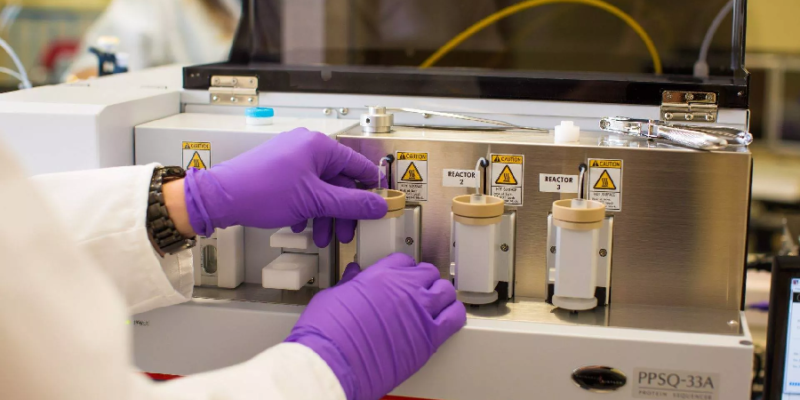While scientific advancement explores newer horizons, there is greater hope for doctors and researchers. Ever since the discovery of insulin, the research and development sector has worked towards experimenting with peptides. No wonder there are more than 80 peptides on the market!
Research laboratories emphasize developing therapeutic peptides. This is because they can find and buy peptides already available. Hence, the research involves modifying the existing molecule for the benefit of humanity.
This article will highlight the importance of peptides in scientific research.
What are peptides?
In simple terms, peptides are a sequence of amino acids that creates the building block of the body system. Skin, hair, blood, or connective tissues, all have peptides in their framework. Peptides can be both simple and complex compounds.
Peptides are essential molecules that trigger or inhibit responses in the system. Also, many people buy peptides in dietary supplements to improve hair growth, skin texture, and bone density.
Working with peptides is very popular in research laboratories because of their similarity with natural proteins in the body. The next section of this article includes the future of peptides in the development of medicine.
Why should labs buy peptides for research?
There is no doubt that technology has brought a rapid positive change in how research organizations work. It has improved communication and accessibility to resources. Thus, it has become essential to highlight the future of peptides in novel drug development.
Below are some pointers on why it is essential to stock synthetic peptides for lab work.
- Pharmaceutical companies have limited resources to synthesize the compound for every experiment
- Common drug metabolism is different in every individual, and it is easy to simulate peptide
- Diseases like diabetes, cancer, osteoporosis, and multiple sclerosis can be treated using peptides
- Peptide helps in developing hormonal therapy because drug design strategies are advancing
- New drug delivery strategies can improve the bioavailability of therapeutic peptides
There is no denying that various natural and modified peptides are being used to overcome drug development challenges. The following section discusses the advantages of drug development using peptides.
Advantages of peptides in drug development
A significant breakthrough is taking place in medicinal chemistry, peptide chemistry, and molecular chemistry. When these fields are combined, it can guide the efforts focused on therapeutic peptides. Hence, it is necessary to understand the reason for the popularity of peptides.
Below are some remarkable advantages that a peptide offers to pharmaceutical research.
- The molecules are particular, and they will give rise to drugs with better efficacy
- Peptides are building blocks of the human body which makes it safer for therapeutic invention
- The immune reaction triggered by peptides is of low intensity and not harmful
- These molecules can pass through cellular membranes that maintain the therapeutic dose in the body
- The easy availability of synthetic peptide molecules makes it easier to carry out research
Also, there are so many unique methodologies that scientists are adopting to simulate the drug. This further reduces the negative impact of clinical trials on animals and human beings.
Final Verdict
Given the facts above about peptides, it is clear that they offer an intrinsic advantage to the drug development sector. While there are some limitations in inventing a novel drug, the utility of existing resources makes it possible to overcome the tedious process.
Moreover, it is surprising that insulin is not the only popular peptide. Therapeutic peptide molecules are used in bowel syndrome, various cancers, and degenerative diseases. Hence, it is safe to say that there will be more peptide-based drugs.








Comments